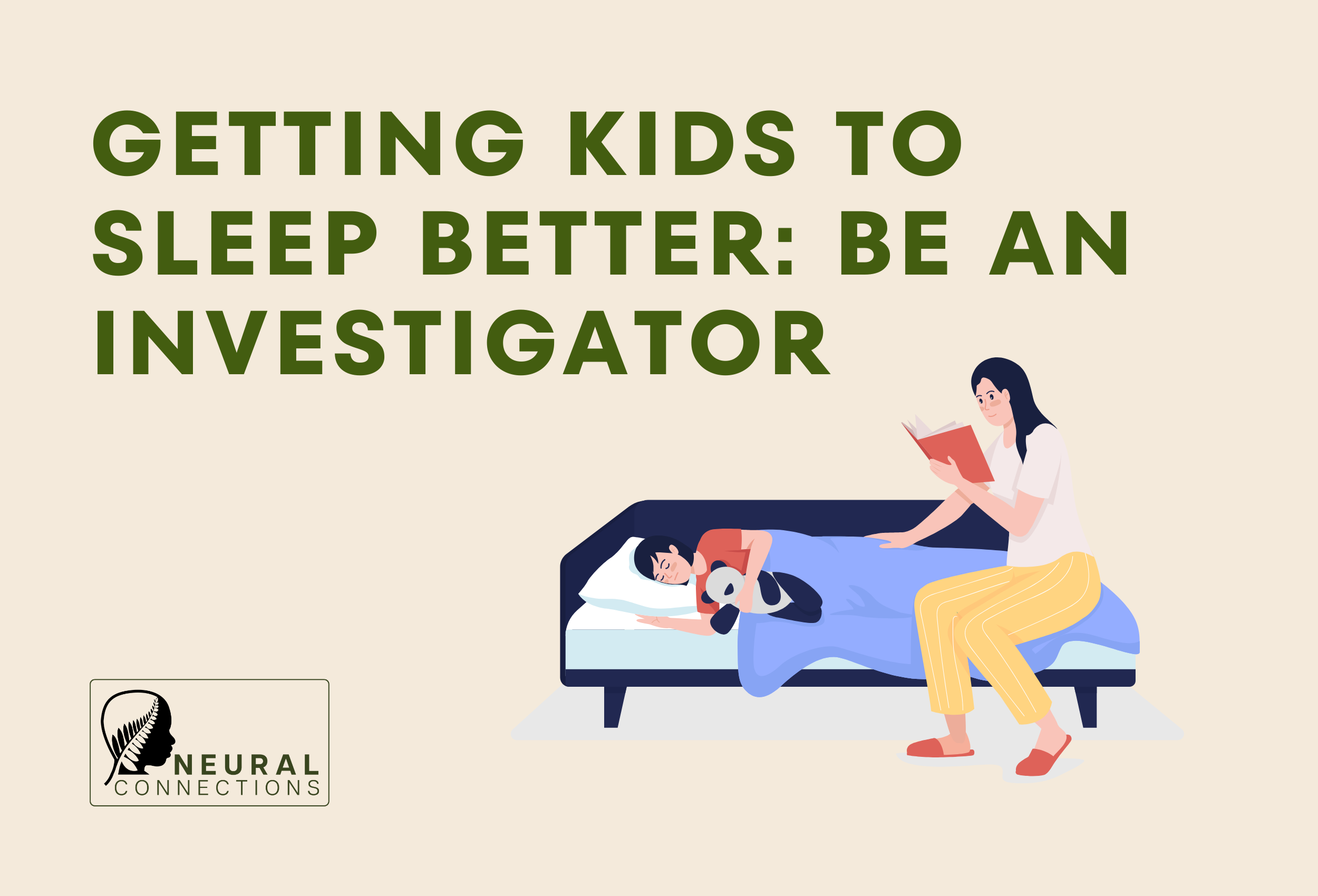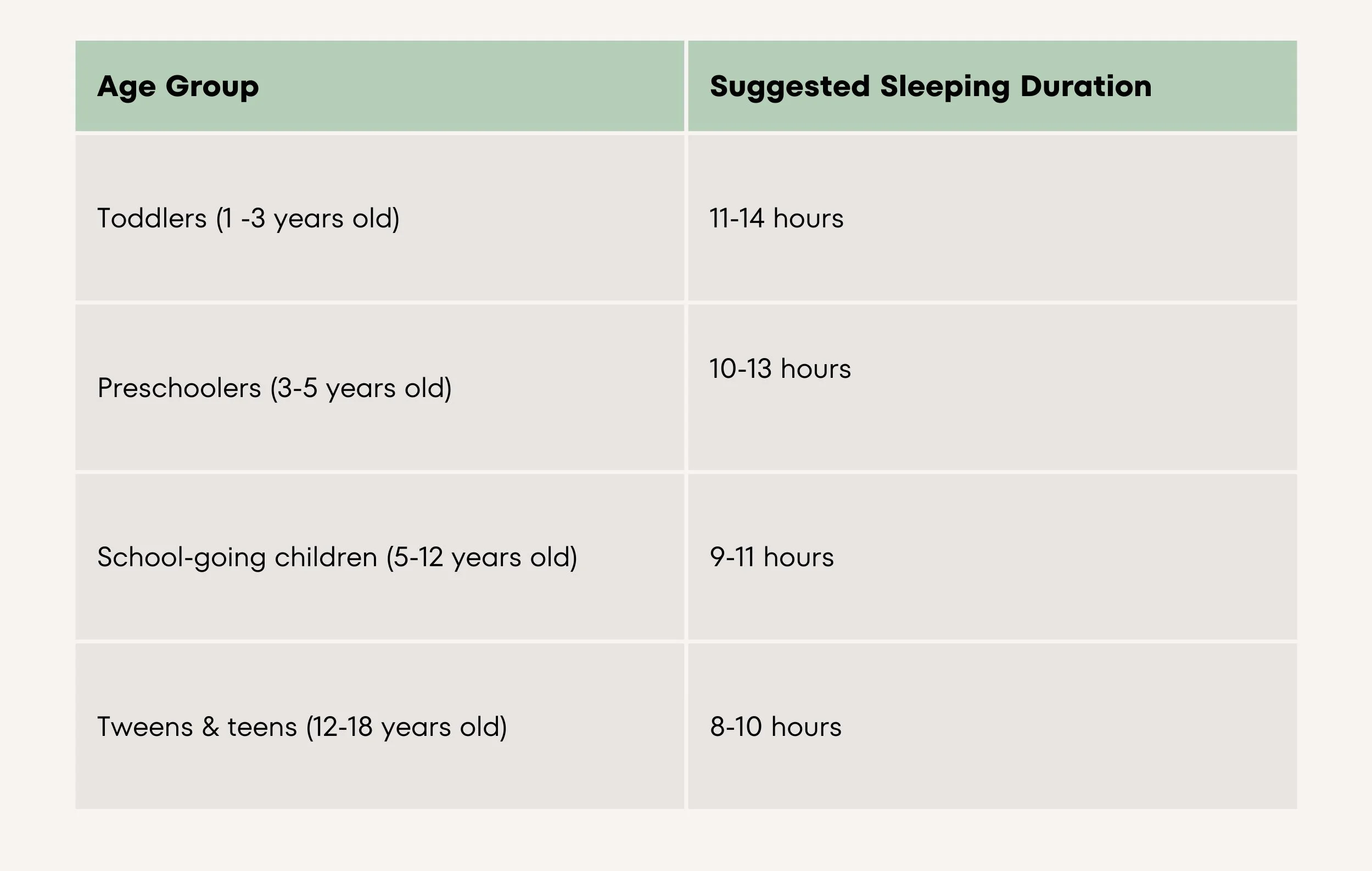Getting Kids to Sleep Better: Be an Investigator
Published: 1 Sept 2024
We all know how important sleep is in children’s development - good sleep contributes to a child’s memory, learning, concentration and overall developmental growth. When it comes to kids’ sleep issues, sometimes it may not be clear what is going on and parents will need to investigate to get to the root of the issue. By asking some questions and being very observant we can get specific and begin to take the necessary steps to zoom in on the issue.
To do a detailed sleep audit - here are some of the questions that would be good for parents to ask:
How many hours of sleep is my child actually getting?
Consider the sleep cycle in a 24h day. On average, these are general guidelines for the sleep duration in a full day. For toddlers and preschoolers the total sleep time includes naps in the day, but at night they should be getting at least 10h.
What time does my child go to bed and how long is my child lying in bed awake?
It’s good to have a stipulated bedtime but it’s also important to observe how long children take to fall asleep once they go to bed. If kids are lying in bed awake for an hour or more, it is time to consider ways on improving sleep hygiene and bedtime routine. For example, putting away the ipads and phones at least an hour before bedtime helps melatonin levels remain stable to help kids get to sleep. Ensuring that pre-bedtime activities are non- stimulating while soothing the nervous system can help ensure that kids get the sleep they need to support their growth.
What is happening during sleep?
The quality of sleep is as important as the number of hours that a child sleeps. And what happens during sleep can be worth observing - are they tossing and turning or do they remain asleep mostly in the same position? Are they sleeping soundly or are they snoring but do not have a cold? Snoring can be a sign of sleep apnea and it will affect the quality of sleep.
During sleep, our brains cycle between REM (rapid eye movement) sleep and non-REM sleep. The combination of REM sleep (sleep where eyeballs flicker side to side; also called dream sleep) and non-REM sleep (deep sleep and light sleep) is known as a sleep cycle. Young children often have 60 min sleep cycles and as they grow older this will lengthen to 90min cycles, similar to that of an adult.
Most children will fall into a deep non-REM sleep during the first few hours of sleep. You may have observed that nothing short of an earthquake can wake some children when they are deep asleep in the first few hours. They then move on to light non-REM and REM sleep in the later part of the night. Children can wake up for a few minutes in between sleep cycles but usually go back to sleep without any fuss. If your child falls outside these sleep behaviours and seems to wake up easily, it is important to seek help.
What is my child’s behaviour and regulation like during the day?
Good sleep often starts with how a child spends their day. If they are getting time outdoors in the sun, their bodies can get more attuned to the circadian rhythms and help them sleep better. If a child has difficulties with self regulation during the day, they may well have trouble falling asleep, or getting quality sleep throughout the night. Dysregulation during the day is likely to lead to dysregulated sleep at night.
At Neural Connections, we focus on offering treatment and protocols to help children regulate their emotions and behaviour better. Schedule a Discovery Call with us today to see if we can help.


